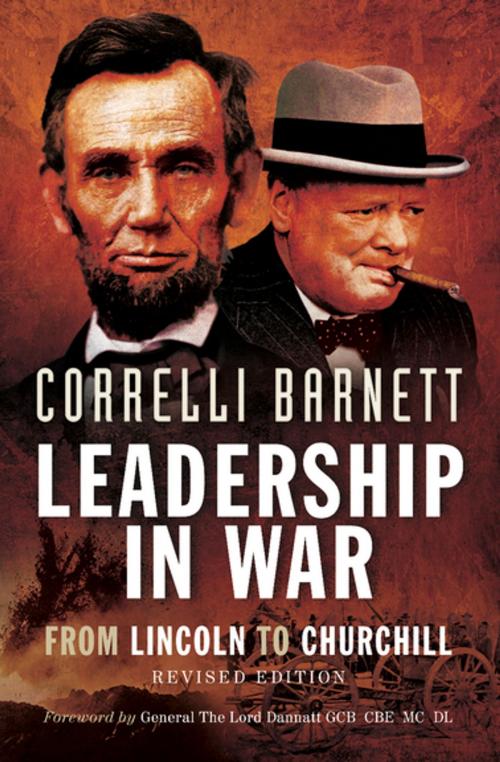| Author: | Correlli Barnett | ISBN: | 9781473842274 |
| Publisher: | Pen & Sword Books | Publication: | June 30, 2014 |
| Imprint: | Praetorian Press | Language: | English |
| Author: | Correlli Barnett |
| ISBN: | 9781473842274 |
| Publisher: | Pen & Sword Books |
| Publication: | June 30, 2014 |
| Imprint: | Praetorian Press |
| Language: | English |
From the author of The Audit of War comes “a valuable read for those interested in leadership” through the 19th and early 20th centuries (StrategyPage).
Throughout history, there have been those who become leaders through effort, fate, violence, or simple luck. They are leaders of men, of armies, and of nations. Some strive for the best of humanity, while others spread death and destruction. But all change history.
In this controversial study, Correlli Barnett examines the strengths and weaknesses of twenty wartime leaders in the nineteenth and early twentieth centuries. He considers the extraordinary difficulties they faced, and analyses how they performed and what they achieved. Were they successful, or were they beaten down by the burden of their roles? His book focuses on men from different backgrounds, from three continents in conflicts ranging from the American Civil War to the Second World War.
They include statesmen such as Abraham Lincoln, Adolf Hitler, and Winston Churchill; generals like Ulysses S. Grant, Douglas Haig, Erwin Rommel, Georgy Zhukov, and Dwight D. Eisenhower; and admirals like Isoroku Yamamoto and Bertram Ramsay. These leaders demonstrated fascinating contrasts of personal character, styles of leadership, and aptitude for command as they grappled with the daunting professional problems that confronted them.
Here, the author demolishes hallowed reputations, rehabilitates the unjustly scapegoated, and shines an unfiltered light on those who have shaped our world.
From the author of The Audit of War comes “a valuable read for those interested in leadership” through the 19th and early 20th centuries (StrategyPage).
Throughout history, there have been those who become leaders through effort, fate, violence, or simple luck. They are leaders of men, of armies, and of nations. Some strive for the best of humanity, while others spread death and destruction. But all change history.
In this controversial study, Correlli Barnett examines the strengths and weaknesses of twenty wartime leaders in the nineteenth and early twentieth centuries. He considers the extraordinary difficulties they faced, and analyses how they performed and what they achieved. Were they successful, or were they beaten down by the burden of their roles? His book focuses on men from different backgrounds, from three continents in conflicts ranging from the American Civil War to the Second World War.
They include statesmen such as Abraham Lincoln, Adolf Hitler, and Winston Churchill; generals like Ulysses S. Grant, Douglas Haig, Erwin Rommel, Georgy Zhukov, and Dwight D. Eisenhower; and admirals like Isoroku Yamamoto and Bertram Ramsay. These leaders demonstrated fascinating contrasts of personal character, styles of leadership, and aptitude for command as they grappled with the daunting professional problems that confronted them.
Here, the author demolishes hallowed reputations, rehabilitates the unjustly scapegoated, and shines an unfiltered light on those who have shaped our world.















